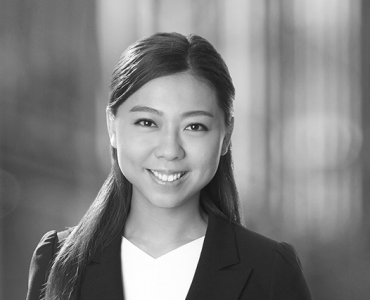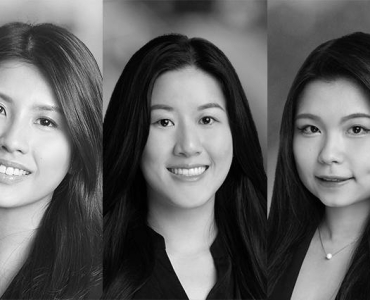
June 2025: We asked Hong Kong Disputes partner Wilfred Ho to reflect on his career to date and share what he's learned along the way.
The people I met here were a big reason to join
I joined White & Case in Hong Kong two years ago. The team that I met with was tight-knit and extremely personable. Working with people that you look forward to seeing every day is essential in this demanding career.
I love being a generalist, not a specialist
I like working on all sorts of matters for diverse clients. Being a part of a global firm means that there's a natural synergy between practices. I get referred restructuring and insolvency work, post-M&A disputes work, fund disputes and really interesting tech work. It's from all across Asia-Pacific too, as our clients are multinational. I relish the challenge of the range of work.
Staying agile is key in my line of work
As a disputes lawyer, sometimes you need to be forceful. But you also need to be able to dial that right down. The best approach does not always mean the most aggressive.
As a junior, I've been part of teams where communication sometimes became quite intense and emotionally charged. Asking for support in order to do the job better is hard to do in that environment. You can be direct about work that isn't good and also express it in a way that encourages people to learn.
Always ask for feedback
When I started out, I didn't take the time to ask for feedback. Sometimes I'd find out that a piece of work that I'd thought went well actually wasn't what was needed, or that I'd unexpectedly done well on something else.
I know now that it's really important to get feedback all the time, including now as a partner. I make a point of asking my clients to tell me how I've done and what I could do better.
Making partner doesn't mean hitting cruise control
Making partner can seem like the pinnacle, but it also means that the buck stops with you. All the difficult problems come to your door, and you really have to apply your mind to figuring out a solution.
In order to get to the right answers, I need to think deeply about the problem that I'm trying to unravel. I allow myself the time to cogitate to identify the correct mental framework to approach the problem. Usually the answer becomes clear once you have identified the correct approach. The answer isn't always legal. Clear thinking is one of the main skills in the job.
The learning process never stops
To best serve our clients, we need to understand their industry and anticipate their challenges. That means reading as widely as possible to be on top of the different trends across multiple industries. So when something becomes urgent for your client, you've already familiarized yourself with the key issues and considered how it might impact their business.
Have a passion for what you do
We're well rewarded as lawyers, but you can't just be in it for the money. If you enjoy what you do—and I've been told that I'm a bit of a legal nerd—then achieving a great work-life balance is easier. It would be awful to spend your time doing work that you hate and don't find meaningful. I can't imagine anything worse.
Young lawyers are not expected to know their exact trajectory
You're not expected to come to a firm as a junior and know immediately that one practice is for you. The purpose of having a training program, of becoming a lawyer, is for people to find their path, including whether they're more interested in transactional or litigation work.
Lots of firms say they're global but…
… global doesn't always mean the same thing. It can just mean some overseas offices to service the local elements of work that originates elsewhere. But White & Case has 43 offices in 29 countries, each with their own strengths and deeply connected to the global platform. That's what truly global really means.





